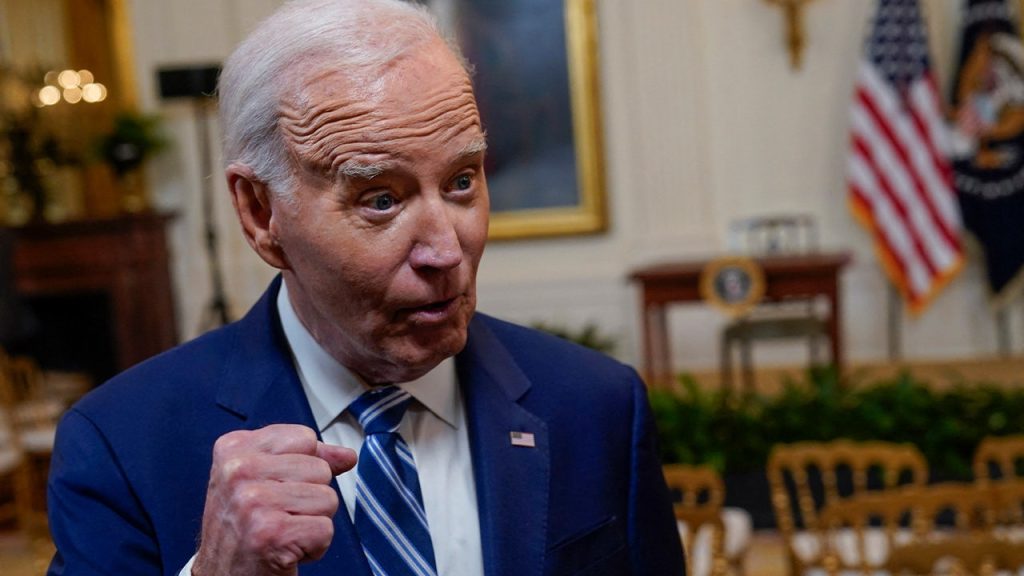President Biden, in remarks following the signing of the Social Security Fairness Act, addressed the lingering impact of the January 6th Capitol riot and indirectly criticized former President Trump, characterizing his actions leading up to the event as a “genuine threat to democracy.” While expressing hope that the nation has moved beyond that perilous period, Biden underscored the importance of restoring fundamental democratic norms. This subtle yet pointed critique served as a reminder of the fragility of democratic institutions and the ongoing need for vigilance against threats to the rule of law. The President’s comments, delivered just days before the second anniversary of the insurrection, highlighted the gravity of the event and its enduring implications for American democracy.
The focal point of Biden’s public appearance was the signing of the Social Security Fairness Act, legislation designed to rectify long-standing inequities in the Social Security system. The Act specifically addresses the Windfall Elimination Provision (WEP) and the Government Pension Offset (GPO), two provisions enacted in the late 20th century that significantly reduced Social Security benefits for certain retirees, primarily those also receiving government pensions. These provisions disproportionately affected public sector workers such as firefighters, police officers, and teachers, leading to a decades-long campaign for their repeal. Biden emphasized the Act’s significance as a victory for economic fairness, ensuring that individuals who contributed to both Social Security and separate pension systems receive the full benefits they earned.
The President framed the signing of the Social Security Fairness Act as both a personal achievement and a culmination of years of advocacy by affected retirees and their representatives. He noted his own involvement in this legislative battle and expressed pride in playing a role in securing its passage. By highlighting the Act’s impact on approximately three million individuals, Biden sought to emphasize the tangible benefits of the legislation and its contribution to economic security for a significant segment of the American population. Furthermore, he positioned the Act as a continuation of the legacy of Franklin Delano Roosevelt, the architect of Social Security, and his commitment to providing a safety net for retirees.
The Social Security Fairness Act’s journey to enactment involved bipartisan support, reflecting the widespread recognition of the unfairness inherent in the WEP and GPO. The overwhelming votes in both the House and Senate demonstrated the broad consensus behind addressing these long-standing grievances. The Act’s passage ultimately represents a significant legislative achievement, not only for the millions directly affected but also as a reaffirmation of the principle that individuals who dedicate their lives to public service deserve to retire with dignity and financial security. This legislative victory aligns with Biden’s broader economic agenda, which prioritizes policies aimed at supporting working- and middle-class families.
Beyond the Social Security Fairness Act, President Biden also addressed a recent act of domestic terrorism in New Orleans. He expressed his intention to visit the city to offer condolences to the families of the victims and meet with local officials. The President acknowledged the profound impact of such tragedies and the limitations of words in the face of such devastating loss. He indicated his intent to offer personal support and empathy to the grieving families, emphasizing the importance of community and resilience in the aftermath of violence. His visit underscores the critical role of national leadership in providing solace and demonstrating solidarity in times of crisis.
In his comments on the New Orleans attack, Biden addressed the issue of potential motives and connections, dispelling rumors of foreign involvement or a broader conspiracy. He stated unequivocally that the perpetrator, identified as Shamsud-Din Jabbar, acted alone and that there was no evidence linking him to any foreign groups or domestic terrorist networks. While refraining from speculating on definitive motives, Biden alluded to the possibility of mental health issues as a contributing factor. He drew a parallel to the 2017 Las Vegas mass shooting, also perpetrated by a lone gunman, to emphasize the recurring challenge posed by individuals acting alone in committing acts of violence.


